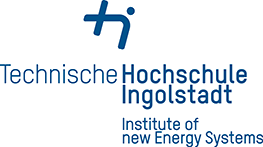Lessons learnt from UAS workshops
Applied Teaching and Learning
- The concept of Applied Teaching and Learning endeavours to instil in the students capabilities to relate what they are learning and the practical problems encountered in industry.
- The use of conceptual seminars provides training for the students in solving real life problems thus improving their problem solving skills.
- High importance is placed on the teaching and learning process and there is a study Dean whose key responsibility is to ensure the quality of teaching and learning is maintained in all the programs.
- The curricula design is done in consultation with various stakeholders such as the industry and the government. Emphasis is laid on the practicability and applicability of the knowledge gained by students at the end of the programs.
- The use of softwares and simulation is emphasized and the students have access to the required learning materials from the library.
- The internship program is well organized and the students are closely monitored and mentored.
- The use of part time lecturers from industry enriches the quality of teaching and learning and strengthens the University-Industry linkages.
- To ensure quality teaching in all UAS, there is a centre for training of lecturers on teaching methods. Regular refresher courses are also offered. Professors also ensure that the part time lecturers deliver their content in the required manner.
- Student numbers in classes and during laboratory sessions are such that each student has a chance to participate actively.
Applied Research
- The Masters and Doctoral projects are done in collaboration with industrial partners. This gives the students an opportunity to also get hands on training from both the industry and the university. Although the UAS cannot offer PhD degrees on their own, they collaborate with the conventional universities nearby to do so.
- The industries have partnered with universities to set up laboratories at the universities where students can conduct research. The industries visited during the workshops exhibited high levels of research and development.
- There are regular meetings between universities and the industry to evaluate the progress of the projects.
- There are a variety of funding opportunities for research from the government and industries.
- Internationalization is prioritized especially in the postgraduate programs many of which are delivered in English.
Knowledge Transfer
- The transfer function is well organized to ensure that the findings obtained from research are patented and protected.
- The government and industry sponsor promising projects and there are incubation centres to nurture ideas.
- The close working relationship between universities and industry enhances the uptake of novel research outputs.
Take home message
Implementation of the German model of Universities of Applied Sciences requires commitment from various stakeholders, mainly the universities, industry and the government. The model is working well and the graduates from the UAS readily get absorbed in industry. Many aspects of this model can be adapted to the Kenyan situation to improve the quality of teaching and learing, research and technology transfer. I highly recommend these workshops and am currently adapting some for use in my teaching and research.


Leave A Comment